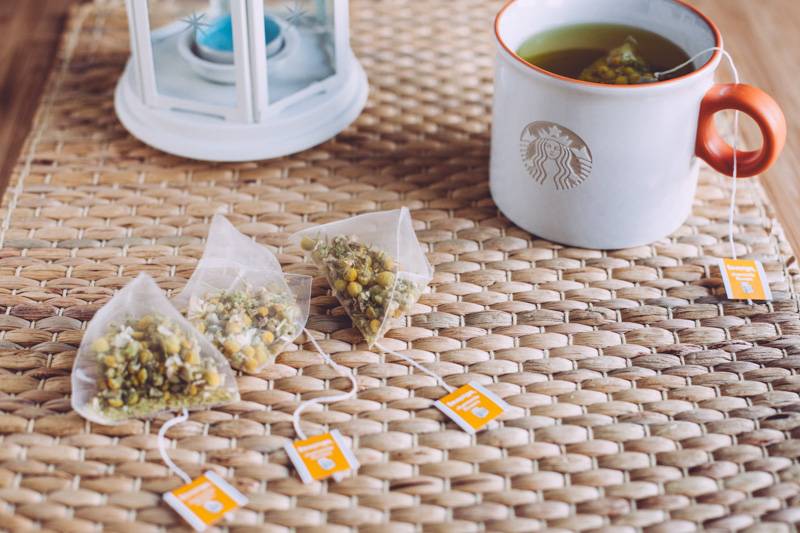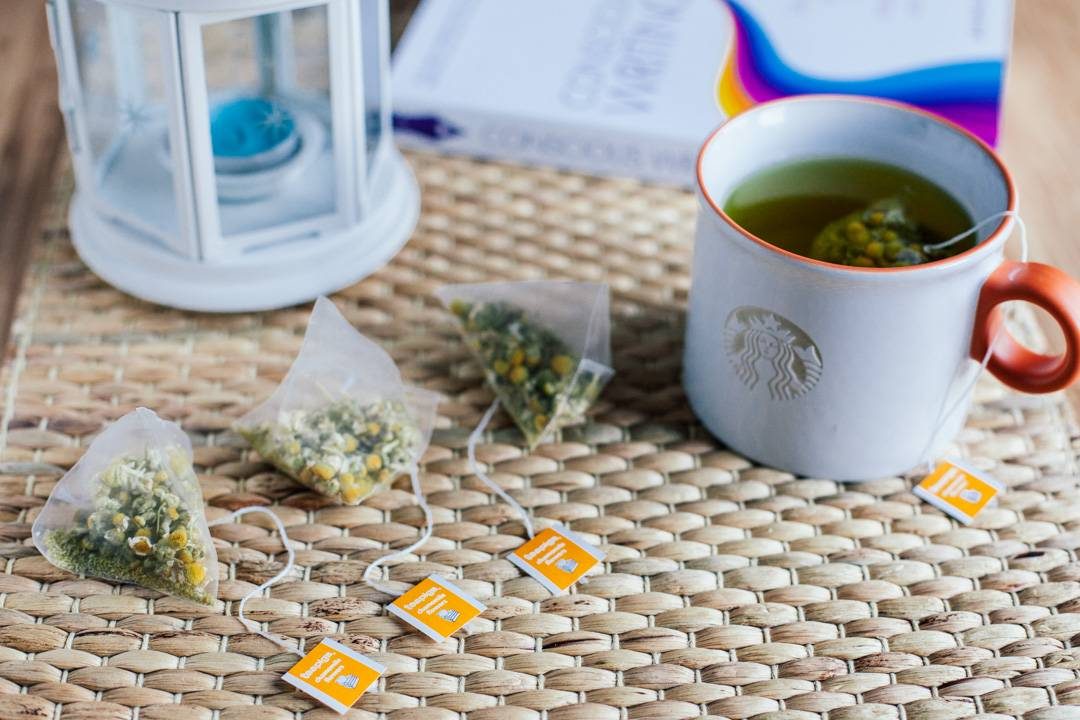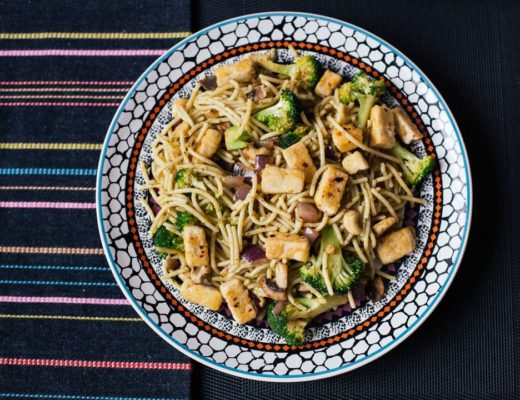5 Health Benefits of Drinking Chamomile Tea was first published in November 2016 and updated in May 2019.
The first time I tried chamomile tea, I was a little surprised to open the tin and find a bunch of tiny flowers staring back at me. I shouted to Ian from the kitchen, asking if he knew that chamomile tea was made from daisies. Apparently, he didn’t know either.
For as long as I can remember I’ve been a troubled sleeper. Even as a child I was restless. Apparently, I was 5 years old before I did my parents the courtesy of giving them a full night’s sleep. Over the years I’ve tried many different things: sleeping with the TV on, relaxation music, leaving the light on, staying up late, evening meditation and herbal sleeping tablets.
10-years ago, I was diagnosed with an under-active thyroid, and once my thyroid levels were under control, I found myself sleeping better than ever. Unfortunately, it didn’t last. I just learned to accept that sleeping through the night was something that happened to other people.
To help aid me in a better night’s sleep, I try to stick to a bedtime routine. This includes a cup of chamomile tea and at least half-an-hour with a good book. Although it doesn’t guarantee me a full blissful 7-hours sleep, I find a relaxing routine before bed helps me to wind down a little and relieve some of the stresses of the day.

5 Health Benefits Of Drinking Chamomile Tea
It Promotes Natural Sleep/Helps with Insomnia
Chamomile tea is known for its sleep-inducing effects. The ideal time to drink a cup is about 30 minutes before you go to bed. Although I don’t manage to sleep straight through, I certainly think including it in my bedtime routine helps me to nod off a little easier.
Chamomile Tea Helps to Reduce Stress
Chamomile tea includes the natural ingredient apigenin, which can help to relieve stress and anxiety. So, instead of searching for another caffeine hit when you feel anxious or on edge, reach for the chamomile tea instead. Making it part of your evening routine will also help you wind down from the events of the day.
Please remember that stress and anxiety are complex health issues that affect everyone differently. Seek advice from a medical professional if you are experiencing severe symptoms.
It Has Anti-Inflammatory Properties
For many years, chamomile tea has been used as a natural anti-inflammatory. If you suffer from joint pain such as rheumatoid arthritis, it may help to relieve some of the symptoms of pain and swelling. I’m by no means suggesting you stop taking any medication you might be on. But drinking a few cups each day could be a welcome accompaniment.
Chamomile Tea Helps Relieve Cold Symptoms
Along with its anti-inflammatory effects, chamomile tea contains compounds that may help to relieve symptoms of the common cold. To help support your immune system, drink up to 5 cups a day to help increase antibacterial activity in your body.
It Can Help Settle an Upset Stomach
It’s also known to help with nausea and discomfort within the digestive system. So, next time you feel a little bit queasy or are struggling with trapped wind, brew yourself a nice cup of daisies.

The two main types are Roman chamomile and German chamomile. As it’s caffeine free, you can comfortably drink up to 5 cups a day. It’s widely available in supermarkets, coffee shops and of course online. My personal favourite is this one from Tea Pigs. Although, I do need to point out that while there are many benefits to drinking chamomile tea, there are also some possible side effects. If you’re allergic to any plants in the asteraceae family, chamomile tea could cause issues if you suffer from asthma.
This obviously isn’t an exhaustive list and there are many other benefits that can come from drinking chamomile tea. As always, if you’d like to find out more information, I suggest you head over to your favourite search engine and do your own research.
Although I am a qualified fitness instructor, personal trainer and vegan nutritionist working in the health and fitness industry, I am not a qualified medical professional.






No Comments